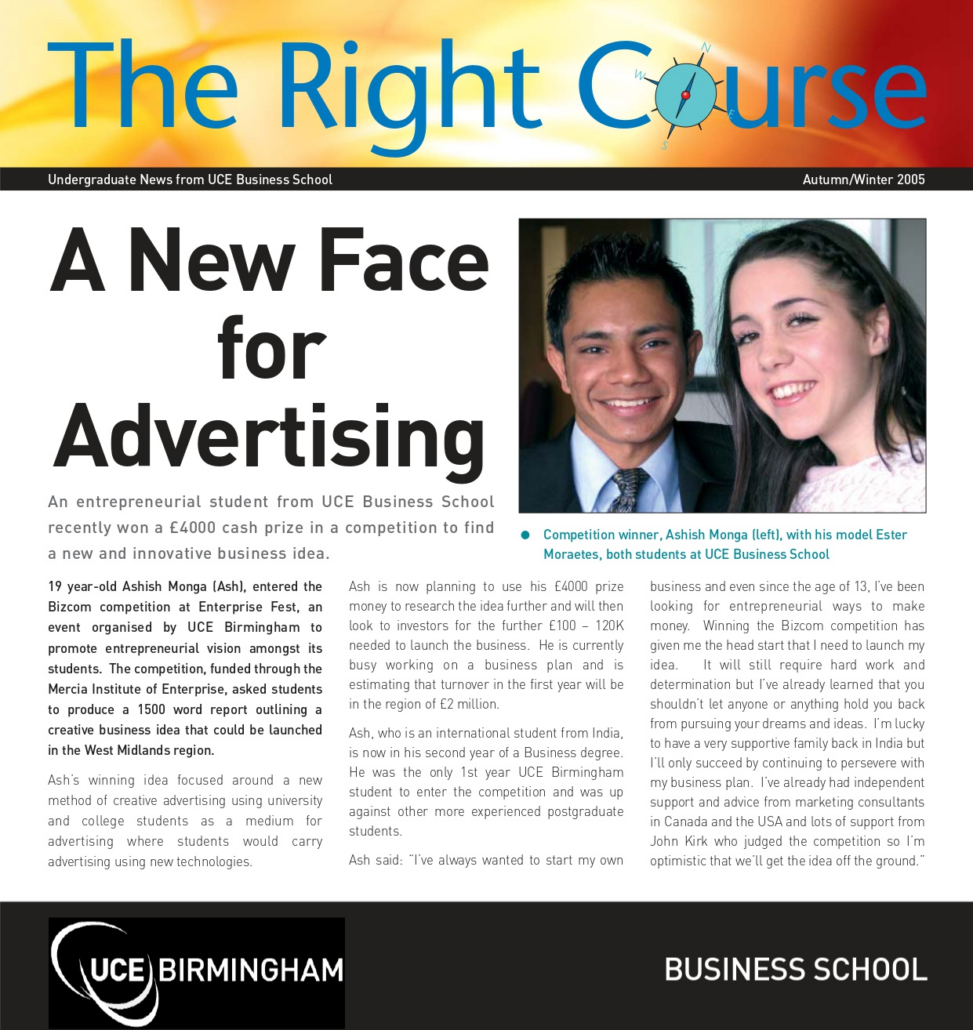Mentors From Afar: The Leaders Who Shaped My Journey
Behind every entrepreneur’s journey are the giants whose stories light the way. Throughout my path from a teenage entrepreneur in Delhi to building businesses in different countries, certain individuals haven’t just influenced me—they’ve fundamentally shaped who I am today.
These aren’t just success stories I admire from afar—they’re the voices that have guided my most crucial decisions and shaped my approach to business and life. In sharing these influences with fellow entrepreneurs and younger founders, I’ve found these conversations often spark the most meaningful connections. This page serves as both a tribute to these profound influences and a curated resource where you can explore their work and most powerful ideas.
Bill Gates
Growing up in New Delhi in the late 90s, Bill Gates represented my first window into the world of entrepreneurship and technology. I still remember the day my father brought home our first desktop computer—a hulking machine with a massive monitor that seemed to hold infinite possibilities. While others saw a computer, I saw the manifestation of what one person’s vision could create.
But it was Gates’ Harvard dropout story that truly captured my teenage imagination. In 1975, Gates made the bold decision to leave Harvard when he spotted an opportunity in personal computing. The key wasn’t the dropping out itself—it was his ability to recognize a transformative moment with the MITS Altair 8800 computer and take decisive action. He believed so strongly in his vision that he was willing to leave one of the world’s most prestigious universities to pursue it.
I first encountered this story in 2001, when I was 15. At the time, I was obsessively working on a business plan for a “social networking club”—filling two entire notebooks with ideas and strategies. I reached out to everyone I knew who might be able to help: my brother-in-law with a printing shop for membership card designs, much older cousins, and uncles for potential investment. Gates’ story convinced me that I, too, needed to go all-in on my venture. In fact, I became so inspired that I wanted to leave school immediately, causing no small amount of stress for my parents who eventually managed to keep me on track with my education.
While that particular venture never materialized, it planted the seeds for what would become my first real business in university. Looking back, I can’t help but smile at my teenage self, standing proudly next to Gates’ poster in my university dorm room.

Beyond the entrepreneurship stories, Gates influenced me in another big way—through his voracious reading habit. His well-known appetite for books inspired my love for reading, which has become the single most powerful habit in my journey, consistently widening my horizons, exposing my blind spots, and challenging my existing beliefs. To this day, I keep an eye out for Gates’ book recommendations.
**Essential Resources**
- Bill Gates’ Blog (www.gatesnotes.com) – Where he shares his thoughts on global challenges and book recommendations
- Inside Bill’s Brain (Netflix Documentary) – A fascinating look into how Gates approaches problem-solving
Steve Pavlina
If Bill Gates showed me what was possible, Steve Pavlina taught me how to get there. I discovered his blog during my first year at university in 2004, and what followed was months of voracious reading that would fundamentally shape my approach to personal development and goal achievement.
Pavlina introduced me to something that would become central to my journey: the art of transforming dreams into achievable goals. One of my earliest applications of his methodology came during my first year at university. As an international student paying nearly seven times the local student fees, the £4,000 prize in a business plan competition caught my attention. It wasn’t just about winning—that money would cover a significant portion of my tuition, easing the burden on my middle-class family who had taken on a major financial responsibility in sending me to the UK.
When I first approached the faculty with my idea, their response was lukewarm at best. They doubted a first-year undergraduate could compete against master’s level students with years more experience. But instead of getting discouraged, I got methodical. I spent countless hours in the library researching business models and case studies. I cold-emailed 78 successful entrepreneurs worldwide seeking feedback. While most never replied (unsurprisingly!), seven did—with two even becoming informal mentors. Their insights helped me transform my raw idea into a comprehensive plan through countless late-night revisions.

The university magazine feature after my win. Looking surprisingly composed for someone who had just spent the previous night frantically Googling “how to tie a tie” before the photoshoot.
While this particular advertising venture never made it past the planning stage due to certain restrictions, the experience and confidence gained laid the foundation for my first successful business—the China import venture.
Whether it was winning that competition, launching my import business, or later making the bold decision to move to China—armed with nothing but goals and determination, no local connections, and barely any understanding of how to navigate a business landscape with significant cultural and language barriers—each milestone started as a carefully written-down goal in my Pavlina-inspired planning system.
The methodology was beautifully practical: annual goals broken down into quarterly milestones, then into weekly objectives, and finally into focused tasks that could be completed in no more than 2 hours. While I’ve significantly simplified my planning formats over the years (moving from complex matrices to a focused one-page framework), these fundamental principles have remained constant for 20 years now.
Looking back, what makes Pavlina’s influence so significant wasn’t just the practical tools he provided, but how they bridged the gap between aspiration and action. Through his work, I developed not just goal-setting habits, but the resilience needed for entrepreneurship. These included annual rituals that I maintain to this day, like my year-end goal and values review process and watching “The Secret” every New Year’s as a reminder of the power of focused intention.
While my personal growth journey has since been shaped by many others—Tony Robbins, Ryan Holiday, and more—Pavlina’s work provided the initial framework that made all subsequent growth possible. His blog was my first masterclass in the mechanics of personal transformation, teaching me that with the right system, any dream could be broken down into achievable steps.
**Essential Resources**
- “How to Set Goals You Will Actually Achieve” – While Steve’s work has evolved more towards spirituality in recent years, here’s a post from back in the day I resonated with.
- “Living Your Values” – Before, I read this post, I often heard the term “Values”, but it was one of those loaded words, with different meanings for different people. This post made me understand the concept at a whole new depth and taught me how to consciously choose values and use them as a powerful decision-making tool.
- “Personal Development for Smart People” – The book that synthesized his core principles.
Ray Dalio
My journey with Ray Dalio’s ideas began around 2015, during one of those late-night YouTube rabbit holes when I stumbled upon “How The Economic Machine Works.” I had just lost high six figures in the stock market – a devastating blow that shook not just my finances but my confidence in my decision-making skills. In that frustrated state, desperately trying to understand where I went wrong, I was searching for anything that could help me make sense of the market.
The video turned out to be a game-changer for my understanding of the market dynamics. Here was Ray Dalio, founder of Bridgewater Associates (once the world’s largest hedge fund), breaking down the incredibly complex global economy into understandable patterns through three main forces: productivity growth, the short-term debt cycle, and the long-term debt cycle. The clarity with which he explained these concepts was remarkable – not by oversimplifying, but by showing how different pieces of the economic machine worked together.
While I was impressed by the video, I actually lost track of Ray’s work until 2017, when his book “Principles” was published. It came highly recommended by what Ray calls “believable people” – those who have repeatedly demonstrated their expertise in specific domains. As someone who is constantly seeking to improve my decision-making skills, I was immediately intrigued.
I have always been fascinated with the question: How could I make better decisions faster? Over the years, I have used various frameworks to support my decision-making – goal-setting, value prioritization, decision matrices – but something was missing. I needed a system that could handle the complexity of real-world decisions while remaining practical and actionable.
“Principles” transformed my approach to this challenge. What I found most fascinating was how Ray’s systematic thinking, first glimpsed in that economics video, extended far beyond finance. I began to see how most complex decisions we face in life, while unique in their specifics, follow similar patterns. They can be categorized into what I think of as “buckets” – and once you understand the underlying patterns, you can develop principles to handle similar situations more effectively, thereby increasing your decision-making effectiveness as you go through life.
This systematic approach to decision-making wasn’t just theoretical – it offered a practical methodology for converting life experiences into tested principles that could guide future decisions.
Another aspect that resonated with me is his belief in radical open-mindedness. Through my entrepreneurial journey, I’ve come to believe there’s an inverse correlation between the size of one’s ego and success. The more I’ve practiced radical open-mindedness – trading the temporary pleasure of being right for the lasting benefit of finding truth – the better my decisions have become. It’s not easy; finding thoughtful people who disagree with you and keeping them close is a challenge, but it’s transformed how I approach both business and life decisions.
The book deepened my understanding of systematic thinking and radical transparency. While building my own businesses, I’ve found myself repeatedly returning to Ray’s processes, particularly when facing complex decisions. His framework has helped me develop my own principles for various situations. Yes, it’s time-consuming initially to build and test principles, but the clarity it brings and the time it saves in the long run is worth the effort.
I’m still learning to master this approach – developing solid principles is an ongoing journey. But even my imperfect implementation has significantly improved both my decision-making process and business outcomes.
Ray’s work offers invaluable insights into systematic thinking and principled decision-making. I’ve curated his most impactful resources below:
**Essential Resources**
- Principles: Life and Work – The foundational book that outlines both life principles for personal development and work principles for building strong organizational cultures
- How The Economic Machine Works (YouTube) – An enlightening explanation of how economic forces interact and influence markets
- 30-Minute Summary of Principles (YouTube) – A concise overview by Ray himself, perfect for those new to his ideas
Naval Ravikant
I still remember that evening in 2020, scrolling through Twitter during one of those contemplative moments when lockdown seemed to spawn endlessly. That’s when I first stumbled upon what the internet now famously calls the “Naval tweetstorm” – a series of tweets that would significantly shift my perspective on wealth, happiness, and purpose.
Naval Ravikant, often called the “Zen master of the startup world,” is best known as the founder of AngelList and an early investor in unicorns like Uber, Twitter, and FourSquare. But to me, he represents something far more significant: a bridge between two worlds I appreciate but sometimes struggle to reconcile – the pragmatic realm of entrepreneurship and the introspective domain of spiritual growth.
You see, as entrepreneurs, we often find ourselves caught in this strange dance. On one side, there’s the relentless pursuit of growth, metrics, and success. On the other, there’s this deeper yearning for meaning, peace, and genuine fulfillment. Having always sensed the deep connection between entrepreneurship and personal growth, I found in Naval’s work a masterful articulation of what I intuitively knew. His insights helped me resolve seeming contradictions between these intertwined paths and showed me new dimensions of their harmony that I hadn’t yet discovered.
His famous tweetstorm (linked below) felt like someone had reached into my mind and organized all these scattered thoughts I’d been grappling with. Questions about the real definition of success and wealth, happiness, personal freedom – ideas that many entrepreneurs constantly wrestle with but rarely find coherent answers to.
I find myself returning to those tweets over and over again, both when making important life decisions and when evaluating multiple opportunities. His framework helps me filter noise from signal, and decide which initiatives deserve my time and energy.
His legendary appearance on Joe Rogan’s podcast (now at 12.5M views) further expanded on these ideas, adding new layers of depth and practical wisdom to the philosophical foundation he’d laid out in his tweets. I listened as Naval articulated the very struggles and questions I’d faced in my own journey. Here was someone who had achieved tremendous success in the Valley, yet was equally comfortable discussing spirituality, inner peace, and the true meaning of wealth.
What draws me most to Naval’s philosophy is how he elegantly simplifies the complex interplay between entrepreneurship, spirituality, and purpose. As he famously says, “It’s the mark of a charlatan to try and explain simple things in complex ways and it’s the mark of a genius to explain complicated things in simple ways.” His own work exemplifies this genius.
Through his insights, I’ve learned to view entrepreneurship not just as a path to building successful businesses, but as a vehicle for personal evolution and positive impact.
In conversations with other entrepreneurs, and young founders that I mentor, I often find myself referring them to Naval’s work. His insights have proven to be such valuable resources that I decided to curate his most impactful resources here, creating a simple reference point for these powerful ideas.
For those interested in exploring Naval’s ideas further, here are the resources I’ve found most impactful:
**Essential Resources**
- Naval Tweet Storm – The original thread that started it all, distilling wealth creation principles into clear, actionable insights
- The Almanack of Naval Ravikant – A comprehensive collection of Naval’s wisdom, beautifully curated by Eric Jorgenson
- Joe Rogan Podcast Episode – A deep dive into Naval’s philosophy, covering everything from meditation to wealth creation
- Naval’s Personal Website – His latest thoughts and a gateway to his other content
Looking Ahead
These four individuals have profoundly shaped my entrepreneurial journey, each illuminating different aspects of success, purpose, and personal growth. In my next piece, I’ll explore the philosophical frameworks (Stoicism) and principles (Compounding, First principle thinking) that have been equally transformative in my path.
I’d love to hear about the voices that have shaped your journey. Who are the entrepreneurs, thinkers, or leaders who’ve influenced your path? Share your story in the comments below – I’m particularly curious to hear about those moments when someone’s ideas fundamentally shifted your perspective or approach to life and business.

Great post! I love how you highlight that mentors can shape us even from afar. Guidance does come in many forms. Thanks for sharing your journey!